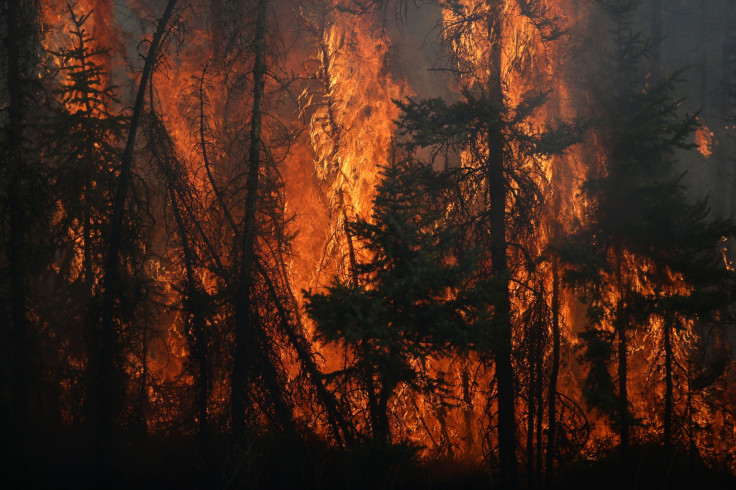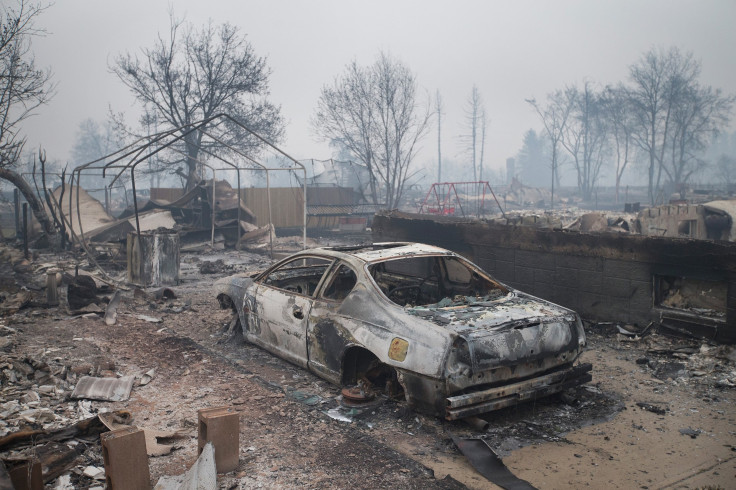Canada Wildfires: Plans To Restart Alberta Oil Sands Operations Near Fort McMurray Abandoned As Fire Spreads

The massive wildfire ripping across Western Canada careened overnight toward two of the country’s oldest and largest oil sands mining complexes. The latest flare-up is forcing some operators to abandon plans to restart production, threatening to further strain Canada’s rapidly diminishing oil output.
Around 8,000 oil sands workers in the Alberta province abandoned camps and production facilities earlier this week as the uncontrolled blaze, now more than a week old, turned north. Alberta Premier Rachel Notley told reporters Tuesday the fires had burned around the edges of oil sands mines operated by Suncor Energy Inc., the industry leader, and its subsidiary Syncrude.
The two facilities sit north of the town of Fort McMurray, which has been devastated by the wildfires. Some 80,000 residents were forced to evacuate the town this month as flames destroyed thousands of homes and buildings, leaving a charred path of destruction.
Many oil sands producers closed or downsized operations to allow workers and their families to move to safety and to barricade their facilities from the flames. Alberta accounts for roughly 80 percent of Canada’s total oil production, and much of the province’s crude is produced by mining or melting bitumen crude from oil sands formations.

Suncor recently closed down production of 300,000 barrels of oil per day at two mines and a couple oil sands well sites in response to the blazes. The Syncrude unit has shut its mines with 350,000 barrels per day in capacity. The companies this week had planned to resume full-scale operations before rapidly changing winds brought the blaze to their doorstep.
Suncor said Tuesday its assets had not been damaged and that the company was boosting fire mitigation and protection measures around all of its facilities. “When it is safe to do so, we will continue implementing our restart plans,” Suncor said in a statement.
Canadian oil production has so far dropped by at least 1 million barrels of oil per day, or about 40 percent of total oil sands output. The Conference Board of Canada recently estimated that 14 days of shutdown would equal a loss of 985 million Canadian dollars ($762 million) in production value.
The disruptions have contributed to a recent rise in oil prices, which are ticking up amid concerns that the two-year supply glut has flipped into a deficit. In Nigeria, militant attacks in the oil-rich Delta region have severely crippled production, all while demand from China and India is expected to accelerate. On early Wednesday, West Texas Intermediate, the U.S. benchmark crude, was above $48 per barrel, a price not seen since October 2015.
© Copyright IBTimes 2025. All rights reserved.



















